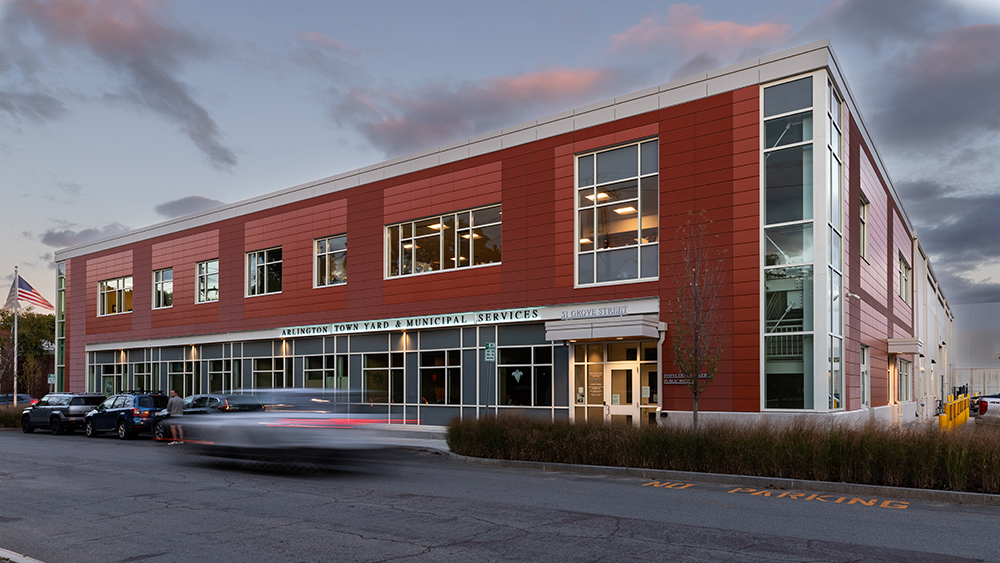Fletcher Tilton building blocks: How to avoid construction litigation - by Adam Ponte - part 5
Fifth in a series of articles about how to avoid construction litigation
 Adam Ponte, Fletcher Tilton PC Attorneys at Law
Adam Ponte, Fletcher Tilton PC Attorneys at LawContractors Beware: Know When You Really Last Performed On The Project We previously featured a construction law article concerning the timing requirements for “perfecting” a general contractor’s or subcontractor’s mechanic’s lien on private construction projects in Massachusetts. That article, titled, “What You Need To Know About Massachusetts Mechanic’s Liens”, provided contractors with an overview of how properly to record and prosecute liens against a project owner or general contractor. Please recall that, among the many rules associated with perfecting a lien, the general contractor or subcontractor must: (1) have a written contract in connection with the project work; (2) record the notice of contract within 90 days of last furnishing labor or materials to the project; and (3) record the statement of account within 120 days of last furnishing labor or materials to the project. The instant article focuses on identifying the potential “work” of the general contractor or subcontractor that may serve as evidence of the date of last performance on a project. If a contractor returns to the project site on a certain date simply to pickup tools, does that date serve as the date of last performance? What if a contractor returns to perform warranty work? Would that extend the deadline to record the notice of contract?
No Massachusetts court has provided a complete list of all project work that potentially would serve as the date of last performance. The courts have, however, on occasion identified what types of work will (and will not) extend the deadline to perfect mechanic’s lien rights.
I. Any Work Performed To Fully Complete Contract May Extend Deadline. The Massachusetts Appeals Court previously has found that “if additional work is required for the proper performance of a contract, even after contractual work is substantially completed, the period for filing the lien will run from the doing of such [additional] work … regardless of the value thereof if not so trivial or inconsequential that failure to do it would still leave the contract substantially performed.” Interstate Elec. Servs. Corp. v. Cummings Props., LLC, 63 Mass. App. Ct. 295, 300 (2005); citing 56 C.J.S. Mechanics’ Liens § 157 (1992). Stated differently and perhaps more simply, the Interstate court ruled that work performed or materials supplied even after substantial completion would extend the lien recording deadline if the work was necessary to fulfill the complete performance of the project contract. In Interstate, an electrical contractor entered into a written contract with a commercial tenant to install a circuit breaker combination cabinet. The circuit breaker was required to be rated for 1,200 amperes capacity. On December 29, 1999, the contractor had finished most of its work, but the circuit breaker’s label incorrectly read “800 AMP” rather than the required 1,200 amperes. The municipal inspector, as a result, only approved the system to operate at 800 amperes. Thereafter, the contractor negotiated with the circuit breaker manufacturer to return to the project to inspect, test and correct the label to read “1200 AMP”. Those tests continued through April, 2000, and the contractor recorded a notice of contract on the project property in May, 2000. The project owner argued at trial that the 90-day clock for perfecting the contractor’s mechanic’s lien commenced in December, 1999 – when the project work was mostly completed. The court disagreed and concluded that even if the correction of the label could be viewed as “trivial”, the project contract required a “1200 AMP” circuit breaker cabinet installation. Where the local inspector only approved operation of 800 amperes because of the erroneous label, the contract had not yet been fully completed. See Interstate Elec. Servs. Corp., 63 Mass. App. Ct. at 300-301.
Therefore, work performed that is “an essential component of [the contractor’s] ability to deliver … [the work] it had contracted to deliver” may serve to extend the deadline for recording a mechanic’s lien against a project. Id. at 301
II. “Gratuitous Acts” To Replace Or Remedy Defects Will Not Extend The Time For Perfecting Lien. Contractors who return to a project to perform work not required for the proper completion of the original contract cannot use that return date to extend the deadline for recording the lien. See Quinn Bros. of Essex v. R.L. Jeannotte, Inc., 2007 Mass. App. Div. 198 (Dist. Ct. 2007); citing Mario Pandolf Co. v. Commonwealth, 303 Mass. 251, 257 (1939); Interstate Elec. Servs. Corp., 63 Mass. App. Ct. at 300.
In Quinn, the plaintiff subcontractor contracted with the general contractor to perform steel work in connection with a church renovation project. The subcontractor recorded its notice of contract in May 2006. The general contractor and owner contended that the subcontractor completed its work in November, 2005, thus nullifying the lien. The subcontractor claimed that it had returned to the project to repair a broken weld on a ladder, which apparently was reinstalled by the subcontractor in March, 2006 (within 90 days of the lien recording). The court ruled that the ladder repair did not extend the recording deadline because no evidence was presented to establish that such repair work was within the scope of the original contract. The court further concluded that the “ladder repair … was a gratuitous performance of work for which the [owner] had not contracted,” and that the work “was inconsequential … the failure to repair the ladder would still have left the subcontract substantially performed. Quinn, 2007 Mass. App. Div. at *3.
III. Warranty Work Generally Does Not Extend The Recording Deadline. Massachusetts courts seem to hold that “warranty work does not generally extend the time for perfecting a mechanic’s lien.” Preferred Contractors, Inc. v. Connecticut Gen. Life Ins. Co., No. 022037, 2003 WL 21246044, at *1 (Mass. Super. May 5, 2003). There appears to be no appellate level case directly dealing with this issue, but at least one superior court opinion, Preferred Contractors, identifies case law from multiple states that have evaluated whether warranty work extends the deadline for perfecting liens. See e.g., Tym v. Ludwig, 538 N.W.2d 600, 604 (Wis.Ct.App.1995) (warranty work or repair work related to original installation fails to extend time for filing lien); Central Coast Electric v. Mendell, 672 P.2d 1224, 1226 (Or.App.Ct.1983) (work related to loosening screws, removing original heater, taking junction box covers oft taping leads, assembling and connecting new heater fails to extend lien deadline).
IV. Conclusion. General contractors and subcontractors who have not been fully paid must pay close attention to the date they last performed on any project. Work that must be completed to satisfy performance of a contract likely may be used to determine the date of last performance. See Interstate Elec. Servs. Corp., 63 Mass. App. at 300; See v. Kolodny, 227 Mass. 446, 450 (1917) (holding additional minor work performed to elevator, although small in comparison to installation job, extended time for perfecting lien). On the other hand, warranty work or additional work that is performed outside the scope of the original contract may not be used to extend the deadline to record the notice of contract and statement of account.
If you are a subcontractor, general contractor or project owner, you should consult with an attorney in the event there is any dispute as to a contractor’s date of last performance on a project and whether mechanic’s lien rights exist.
Adam Ponte, Esq. is a litigation attorney at Fletcher Tilton PC Attorneys at Law, Worcester, Mass.
Weston & Sampson earns award from ACEC for Arlington DPW job


Careers in Construction Month focus on training and safety - by Joe Camilo

The design-build advantage: Integrated interior design solutions - by Parker Snyder

Ask the Electrician: Is summer a prime time for commercial electrical maintenance?








